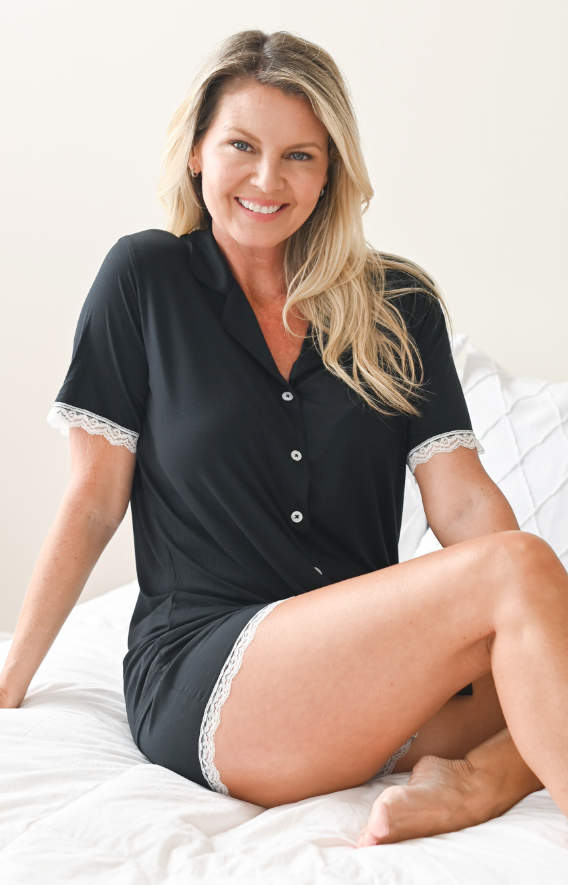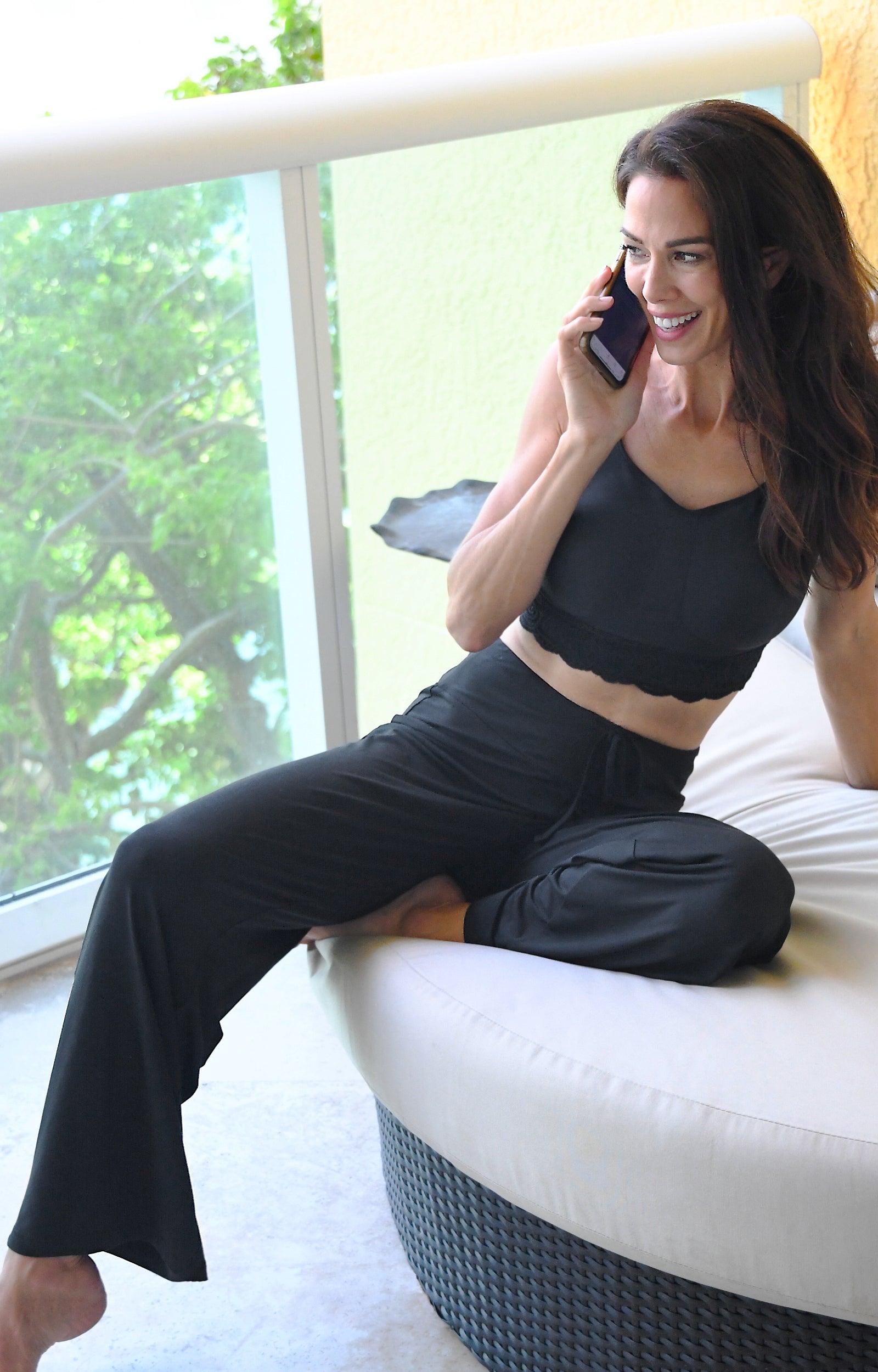Your Cart is Empty

How Should A Bra Fit
5 min read
How A Bra Should Fit

Wearing the right-sized bra is important for both comfort and support. Cup size should encapsulate the breast without bulging over the top or gaping at the sides. The band should be snug but not tight, and it should lie straight across the back.
The straps should be adjusted so they sit comfortably on the shoulders without digging in or slipping off. Additionally, it's important to make sure that all of the breast tissue is contained within the cup.
If you are unsure of your bra size, most stores offer measuring services to help you find the perfect fit. Taking a few minutes to get properly fitted can make a world of difference in both comfort and support.
The Benefits Of Wearing The Correct Size Bra
Many women don't realize the importance of wearing the correct size bra. Wearing a bra that is too small can cause several uncomfortable problems, including bra straps that dig into the shoulders and a band that rides up in the back.
Wearing a bra that is too large can be just as problematic, resulting in shoulder straps that slip off and a cup that doesn't provide adequate support. It's important to take the time to find a new bra that fits well and provides the right level of support.
The best way to do this is to get professionally measured by a bra specialist. They will help you find the right style and size for your body type. Once you've found the perfect bra, you'll wonder how you ever went without it!
How To Measure Yourself For A Bra
Measuring yourself for a bra may seem like a daunting task, but it's quite simple. All you need is a soft tape measure and a mirror. First, stand in front of the mirror and take a look at your chest.
Take note of where your breasts sit on your chest and what their overall shape is. Then, wrap the tape measure around your chest at the point where your breasts are to the fullest. Make sure the tape measure is level all the way around and not too tight. Once you have your measurement, round up to the nearest inch.
This will be your band size. Next, measure the distance around your chest at the point where your breasts sit. Again, make sure the tape measure is level and not too tight. Once you have your measurement, add four inches to get your cup size.
For example, if you measured 32 inches around your chest, then your cup size would be 34C. With these two measurements, you should be able to find a bra that fits well and provides ample support.
How The Cups Should Fit

Selecting the right size bra cup is essential for comfort and support. If the cup is too small, it can cause discomfort and may even lead to breast pain.
Similarly, if the cup is too large, it can result in instability and a greater risk of injury. There are a few simple ways to determine if the bra cups fit correctly.
First, check to see if there is a gap between the cup and the breast. If there is, then the cup is too small. Secondly, look at the cup size. If it seems excessively large or small, then it is probably the wrong size.
Finally, try on both smaller and larger sizes to see which one provides the best fit. By taking these steps, you can ensure that you select the right cup size for your needs.
How The Straps Should Fit
The straps on your backpack should fit snugly but comfortably on your shoulders. If the straps are too loose, the backpack will bounce around and rub against your skin, which can cause chafing.
If the straps are too tight, they will dig into your skin and make it difficult to breathe. You should be able to adjust the straps so that they are tight enough to stay in place but loose enough to allow you move freely. The best way to find the perfect fit is to go to a store and try on different backpacks until you find one that feels comfortable.
How The Band Should Fit
Wearing a band that is too large can cause it to ride up and stretch out, while a band that is too small will be uncomfortable and constricting. The band should fit snugly around the base of the rib cage, with enough room to stretch out.
If the band slides up when stretched, it is too large. If the band feels tight or constricting, it is likely too small. To find the right band size, take a tape measure and wrap it around the rib cage, just under the breasts. Make note of this measurement and refer to a sizing chart to find the corresponding band size.
Keep in mind that band sizes vary from brand to brand, so it is important to try on bras before making a purchase. Try on different styles and sizes until you find one that fits well and provides support without being uncomfortable.
Different Types Of Bras And Their Purposes

There are a few different types of bras, and each type has a specific purpose. The most common type of bra is the push-up bra, which is designed to lift and support the breasts.
Push-up bras usually have thick padding under the cups, which helps to create cleavage. Another common type of bra is the sports bra, which is designed to minimize breast movement during physical activity.
Sports bras usually have a band that goes around the chest and straps that go over the shoulders. There are also strapless bras, which are held up by an elastic band around the chest.
Strapless bras are typically worn with dresses or tops that have a low neckline. Finally, there are bralettes, which are simply wire-free bras without any padding or support. Bralettes are often worn for their style rather than for their function.
Final Thoughts
So, how should a bra fit? The answer to this question may vary depending on the person, but in general, a woman’s breast should be fully enclosed by the bra cups and does not need to adjust her straps more than once a day. The band size, bra cup, bra style, and bra band fit comfortably. If you are experiencing any of the issues we listed earlier, it might be time for you to find a better-fitting bra.
Related Articles
- The Do's And Don'ts Of Caring For Your Intimate Apparel
- The Perfect Bra Solution To Eliminate Back Fat And Muffin Top
- Staci's Overview Of Shapeez Styles
Also in Blog |Staci's Bra Tips, Advice, and Insights
Subscribe
Sign up to get the latest on sales, new releases and more …






